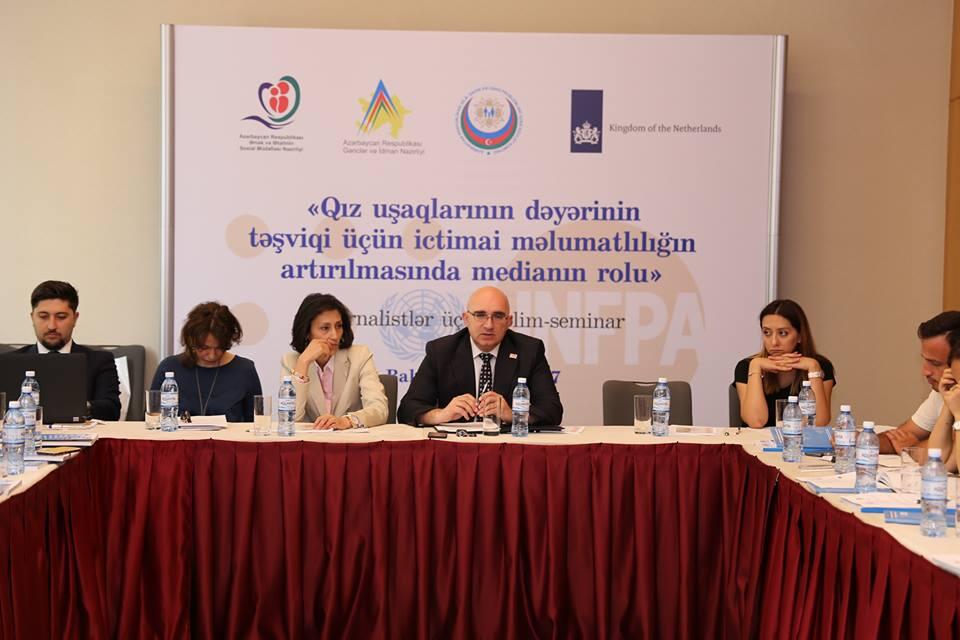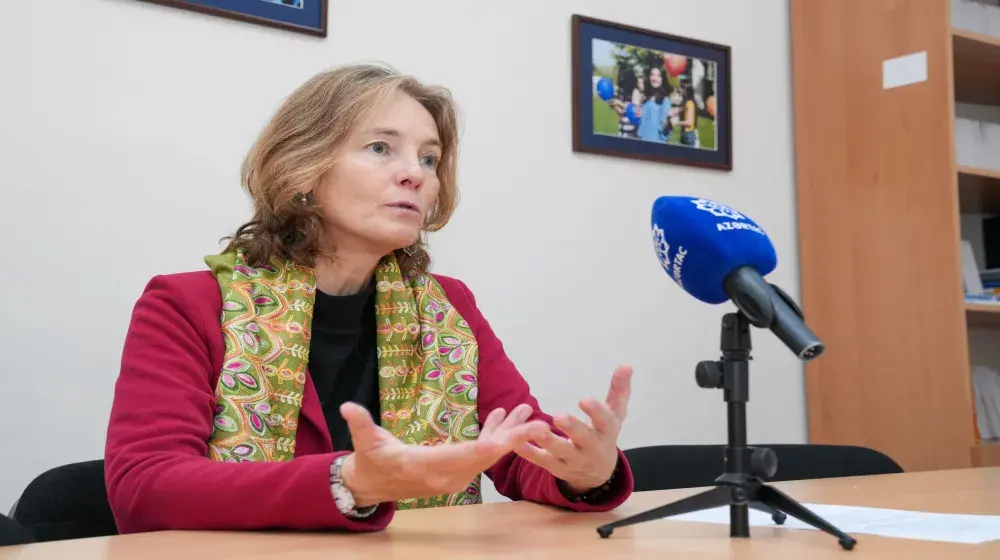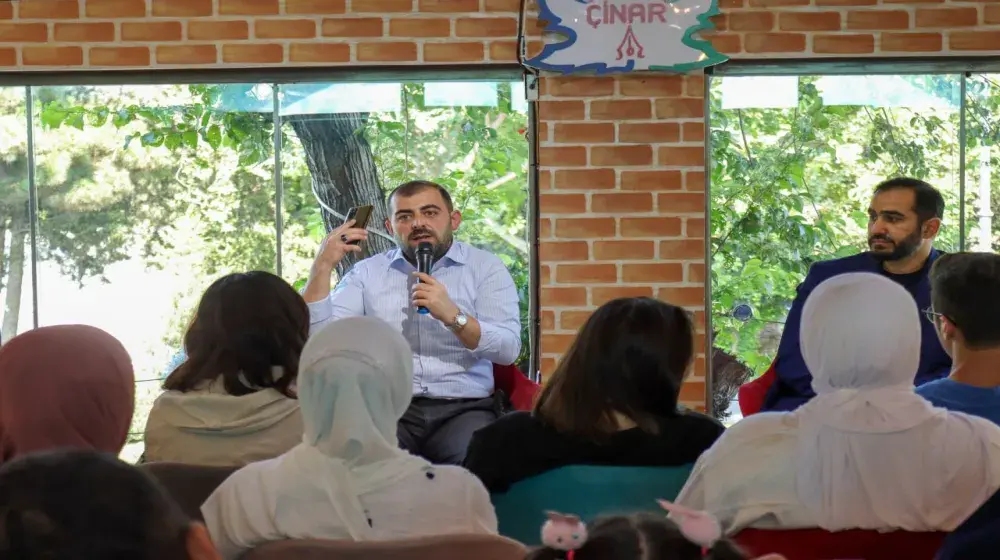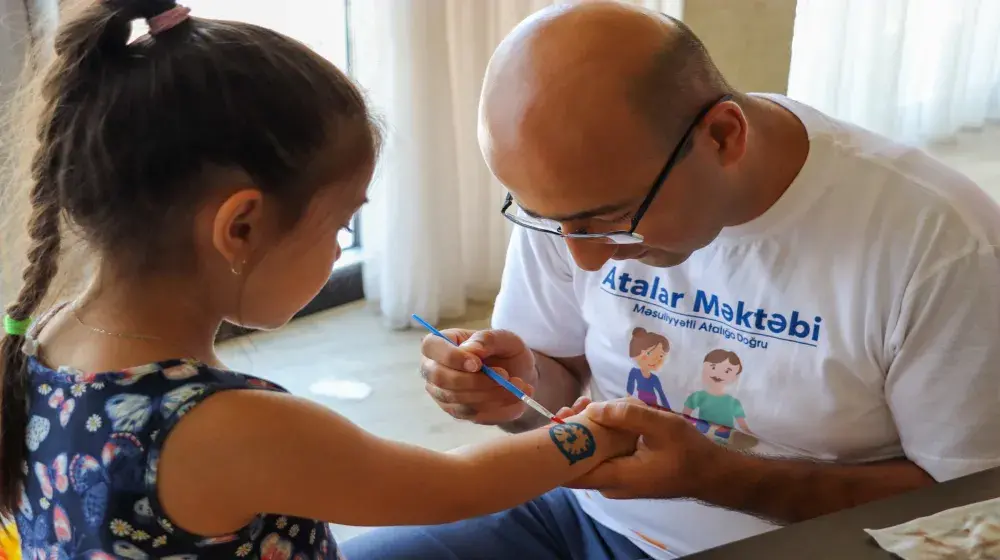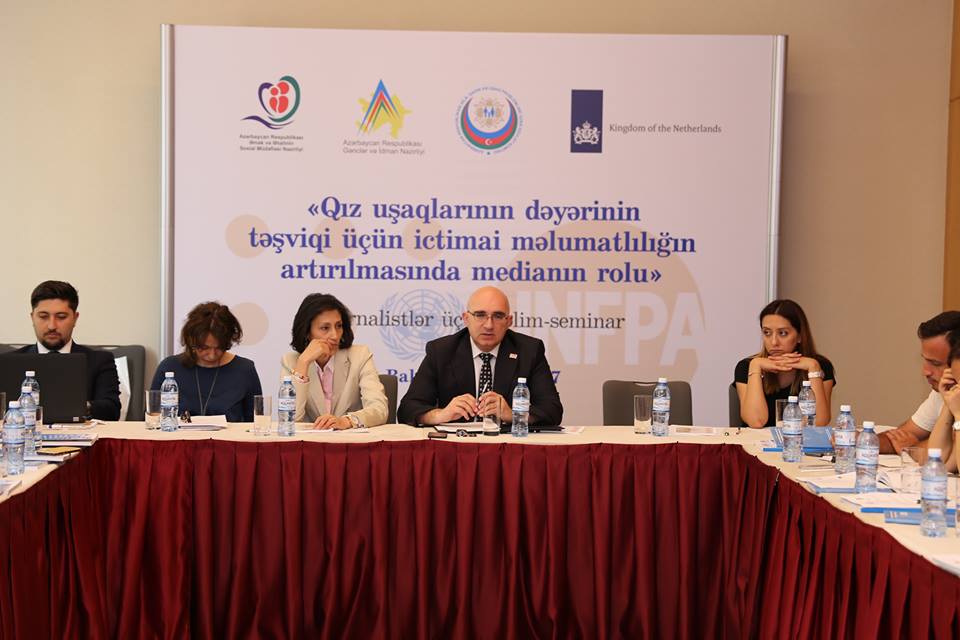
“An issue of the decrease in the fertility rate and the skewed sex ratio of newborn children is observing in Azerbaijan”. These words were stated by Ms. Naile Verdiyeva, Head of Demography sector of the Ministry of Labor and Social Protection (MLSP) at the training-seminar on the topic “The role of the media in raising public awareness for promotion of girls’ value” for journalists in Baku.
“The annual population growth was 1,1% last year, which was due to natural increase. Although positive indicators in natural increase was registered, the situation in the domain of reproductive health is not satisfactory. The cause of skewed sex ratio is the parents’ decision about choosing a child's sex and their actions, such as selective abortions.”, - N.Verdiyeva said.
According to her skewed sex ratio of newborn children leads to the change of sex structure of whole population. “Regarding data on population census, if there were 1051 women per 1000 men in 1989, in 1999 this figure was 1048, while as in 2009 it dropped to 1021. Considering the superiority of boys among newborn children, i.e. above biological norms, and the assumption that this trend will continue in the next years, there is a risk that the number of women may be inadequate to meet the required level of fertility in the future. So, indicated could have the negative impact on sustainable demographic development. Regarding it, with relevance to country’s long-term development line, MLSP provided a state program “Development of population and demography spheres in the Republic of Azerbaijan”, considering the proposals of relevant agencies, and with the support of UNFPA international analysis of the document was carried out. The main purpose of the program is to create a comprehensive environment for the stabilization of the population's reproduction level, which ensures the quality of the population. There is also a separate section about sex ratio distortion at the program. The solution of the problem requires public awareness and, generally, the implementation of complex measures.”
Assistant representative of UNFPA in Azerbaijan, Dr. Farid Babayev, said that mobilization of government, civil society and media is essential for implementation of laws and programs in the country. “Also, the awareness of executives should be constantly increased to make the accomplished work more efficient. It’s desirable to conduct trainings as well. Trainings mean an enlargement of possibilities. There should be publicity for it,” mentioned Dr. Babayev. According to him, prevention of the gender-biased sex selection of children born in Azerbaijan is one of the main strategic priorities of UNFPA.
The experiences of India and China, where this problem is lasting for decades, show that excessive increase in the number of men leads to impossibility for them to find a partner to marry; at the same time, it’s closely related to a number of unfavorable situations, such as aggravation of the general criminogenic situation because of the widespread of cases of aggressive behavior, bride kidnapping, early marriages, human trafficking and so on.
Based on forecasts, if the proportion of birth remains 116, or this figure increases, then 12 – 15 more boys will be born every year. Thus, the demographic situation in the country will reach a stage known as masculinization. And after this stage, even though the achievement of gender balance could be possible, but hard.
UNFPA is particularly concerned about this problem, as it directly related to reproductive health and population matters, as well as the dynamics of gender relations. Considering it, UNFPA is launching a series of new projects aimed at preventing gender-biased sex selection. These projects are implementing with financial support from the Netherlands and the European Union.”
Dr.Farid Babayev indicated, that for successful execution of these projects, the Ministry of Labor and Social Protection of Population of the Republic of Azerbaijan, the Ministry of Youth and Sport, the State Committee for Family, Women and Children Affairs are also closely involved as key government partners in the implementation of both projects: “Nevertheless, I should note that the contribution of the “fourth power”, i.e. media, is crucial for the success of interventions. Considering it, we urge you to be more active to combat this problem.”

